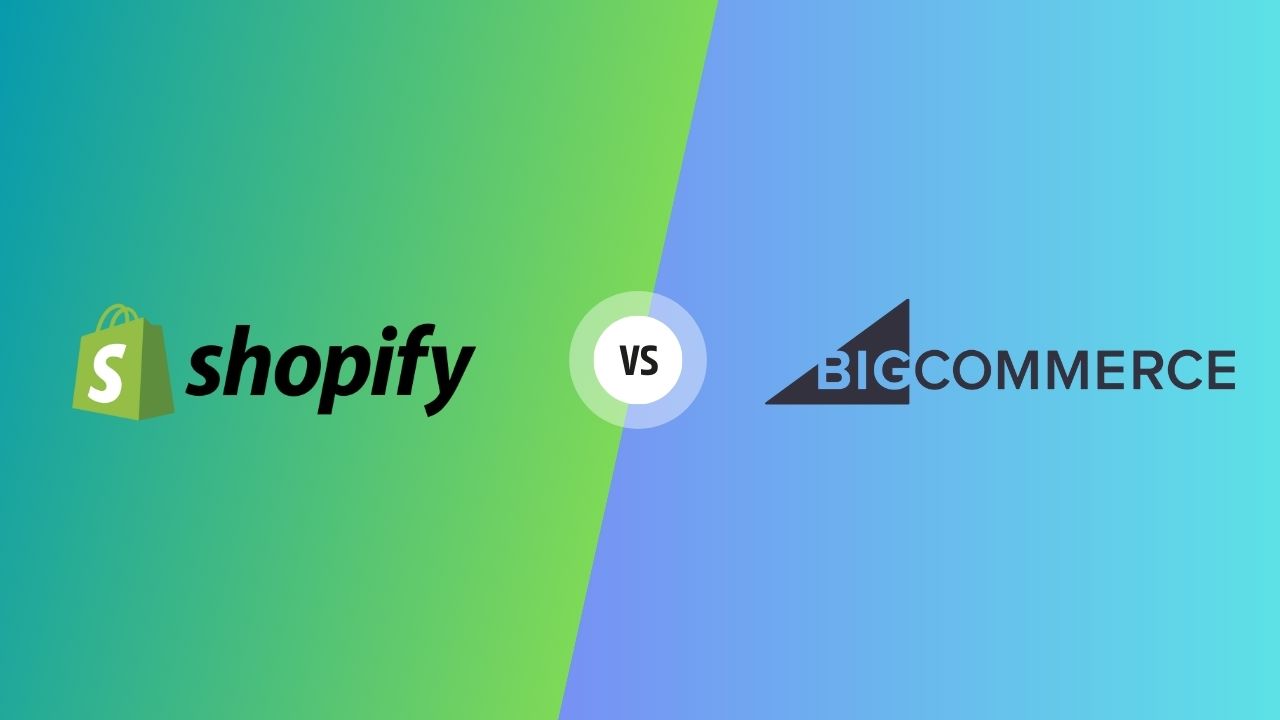Table of Contents
Overview of APIs
In the ever-evolving landscape of Ecommerce, harnessing the power of APIs has become a defining factor for success. Two prominent contenders in the Ecommerce platform arena, Shopify and BigCommerce, offer APIs that empower businesses to enhance their online stores’ functionality, connectivity, and customization. In this comprehensive comparison, we’ll delve into the intricacies of Shopify API vs BigCommerce API, exploring their developer-friendly features, integration possibilities, customization capabilities, data access and manipulation, performance and speed, real-time updates through webhooks, security measures, pricing structures, and more. By the end of this exploration, you’ll be equipped with insights to make an informed choice that aligns with your business goals and sets you on a path to Ecommerce excellence.
Developer-Friendly Features
When comparing the APIs of BigCommerce and Shopify, one important aspect to consider is their developer-friendly features. These features play a significant role in how easily developers can work with the platform, integrate services, and create custom solutions. Let’s delve into the developer-friendly features offered by both platforms.
Shopify API Developer-Friendly Features
Shopify’s API is known for its user-friendly documentation and well-structured endpoints. Developers can access a comprehensive API reference that provides clear explanations of available endpoints, request parameters, and response formats. This documentation simplifies the integration process and reduces the learning curve for developers.
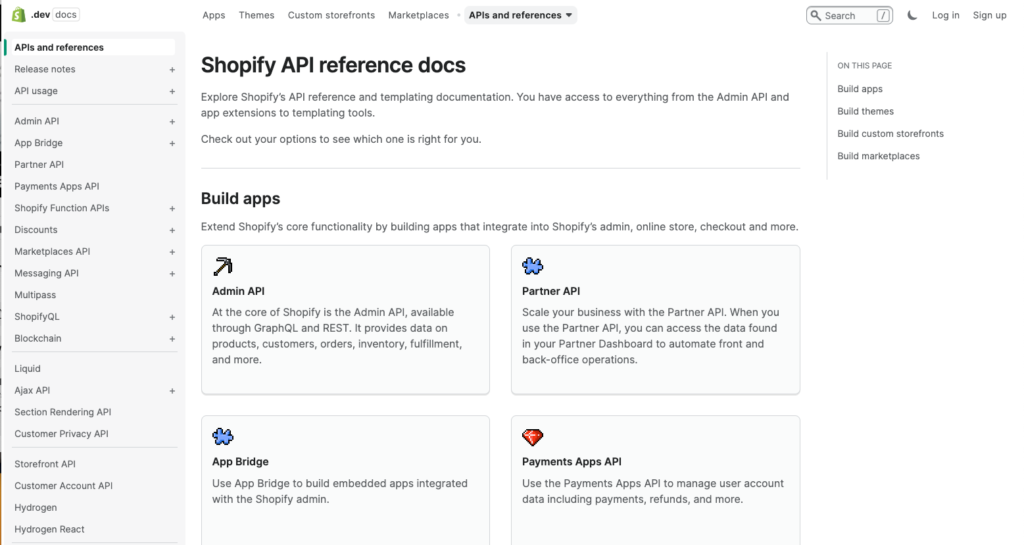
Additionally, Shopify offers software development kits (SDKs) for various programming languages, including Ruby, Python, and PHP. These SDKs streamline the integration process by providing pre-built functions and libraries, saving developers valuable time and effort. This is particularly beneficial for those who are not as familiar with coding from scratch.
BigCommerce API Developer-Friendly Features
Similarly, BigCommerce also provides a developer-friendly environment for integrating and customizing its API. The platform offers well-documented APIs with clear explanations of endpoints, authentication methods, and data structures. This documentation helps developers understand how to make API calls and retrieve the information they need.
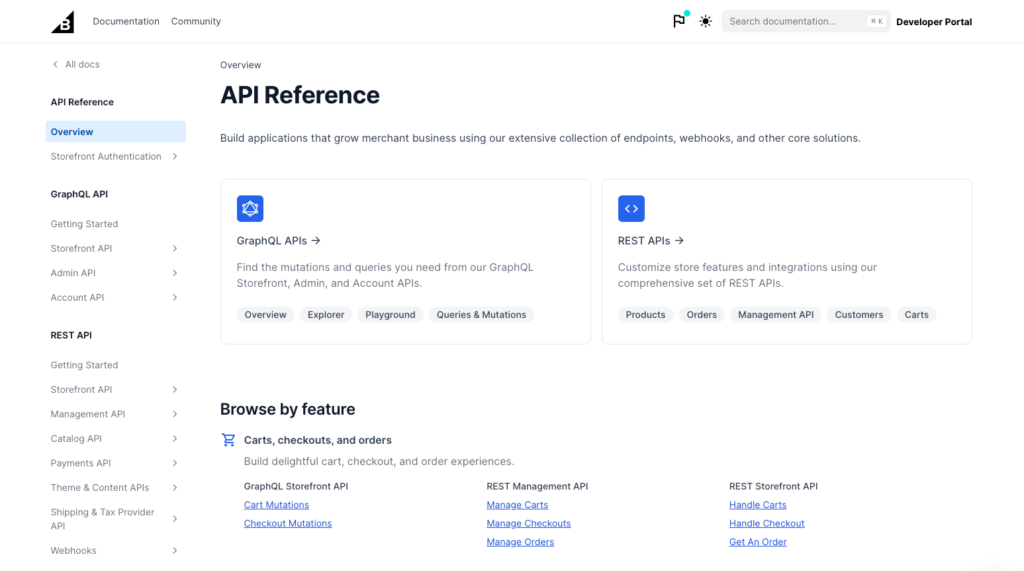
To facilitate the development process, BigCommerce supports a wide range of programming languages, ensuring that developers can work with the languages they are most comfortable with. This flexibility empowers developers to create tailored solutions that seamlessly integrate with their online stores.
Integration Possibilities
When comparing the APIs of Shopify and BigCommerce, it’s essential to explore the integration possibilities each platform offers. The ability to seamlessly integrate with third-party services, apps, and tools can greatly enhance the functionality and reach of your Ecommerce store. Let’s take a closer look at the integration possibilities for both platforms.
Shopify API Integration Possibilities
Shopify’s API ecosystem is rich with integration possibilities. The platform boasts a vast App Store featuring a wide array of apps and plugins that can be seamlessly integrated into your store. From marketing automation to inventory management and customer support, Shopify’s API allows you to extend your store’s capabilities effortlessly.
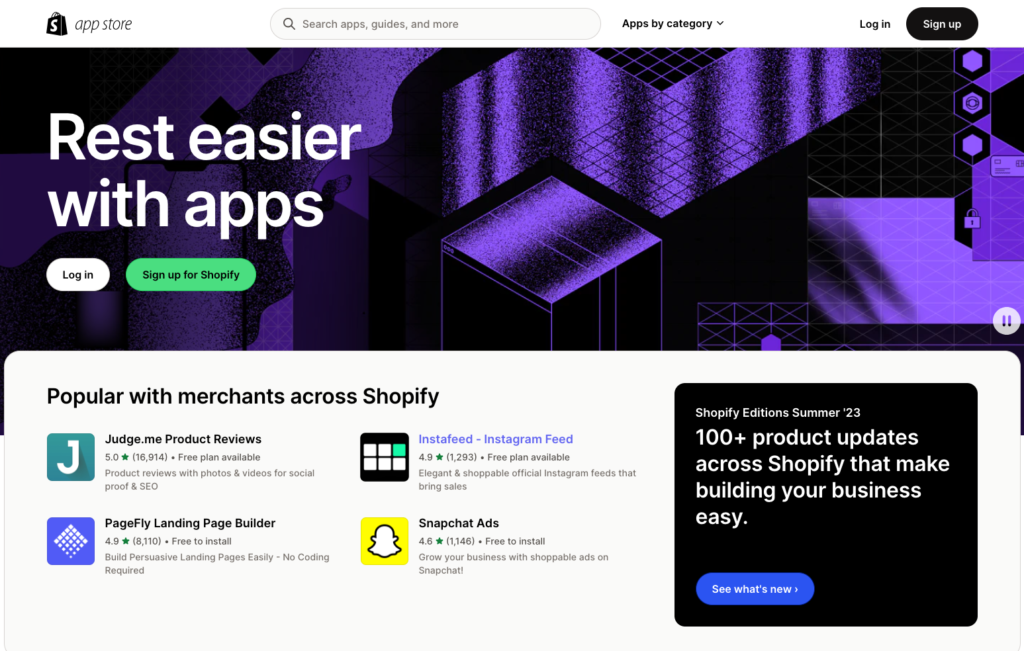
Additionally, Shopify’s API facilitates custom integrations with services that cater to specific business needs. Whether you’re looking to connect with email marketing platforms, CRM systems, or payment gateways, Shopify’s API provides the flexibility to create tailored solutions.
BigCommerce API Integration Possibilities
BigCommerce also offers robust integration possibilities through its API. The platform allows you to connect with a variety of third-party apps and services that can enhance your store’s functionality. From accounting software to shipping solutions and analytics tools, BigCommerce’s API opens doors to a diverse range of integrations.
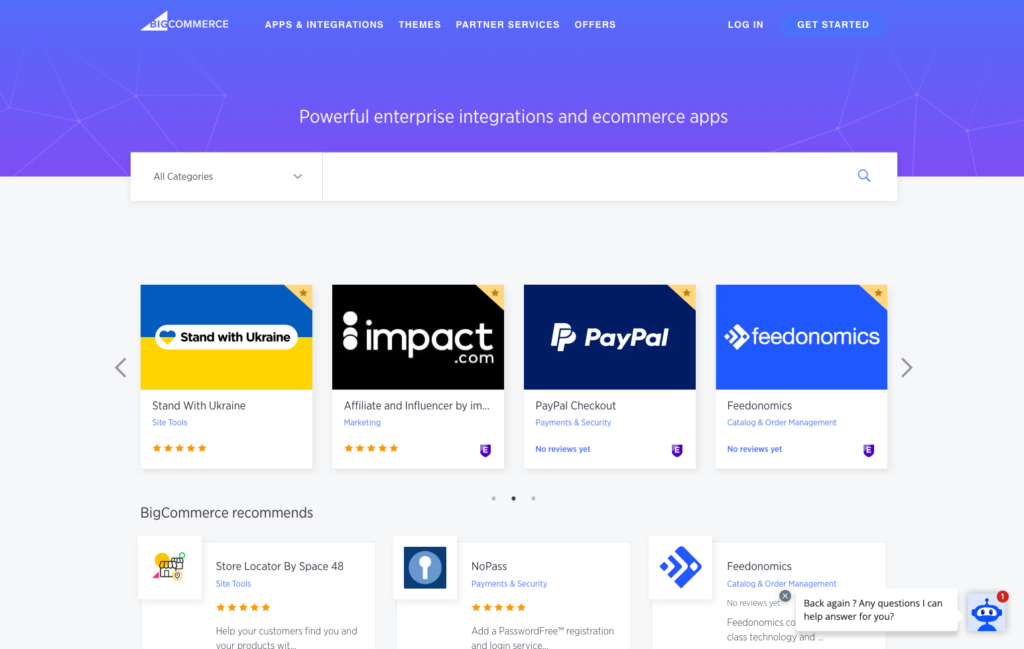
Moreover, BigCommerce’s API enables you to create custom integrations to address unique business requirements. This flexibility empowers you to build connections with tools and services that align with your specific Ecommerce goals.
Customization Capabilities
Customization is a crucial factor when comparing the APIs of Shopify and BigCommerce. The level of customization each platform offers can greatly impact your ability to tailor your Ecommerce store to your brand’s unique identity and customer experience. Let’s delve into the customization capabilities provided by both platforms.
Shopify API Customization Capabilities
Shopify’s API empowers developers to create highly customizable solutions for their Ecommerce stores. The platform offers extensive tools for modifying storefronts, adding unique features, and creating personalized shopping experiences. With access to Shopify’s Liquid templating language, developers can craft custom themes that align with your brand’s visual aesthetics.
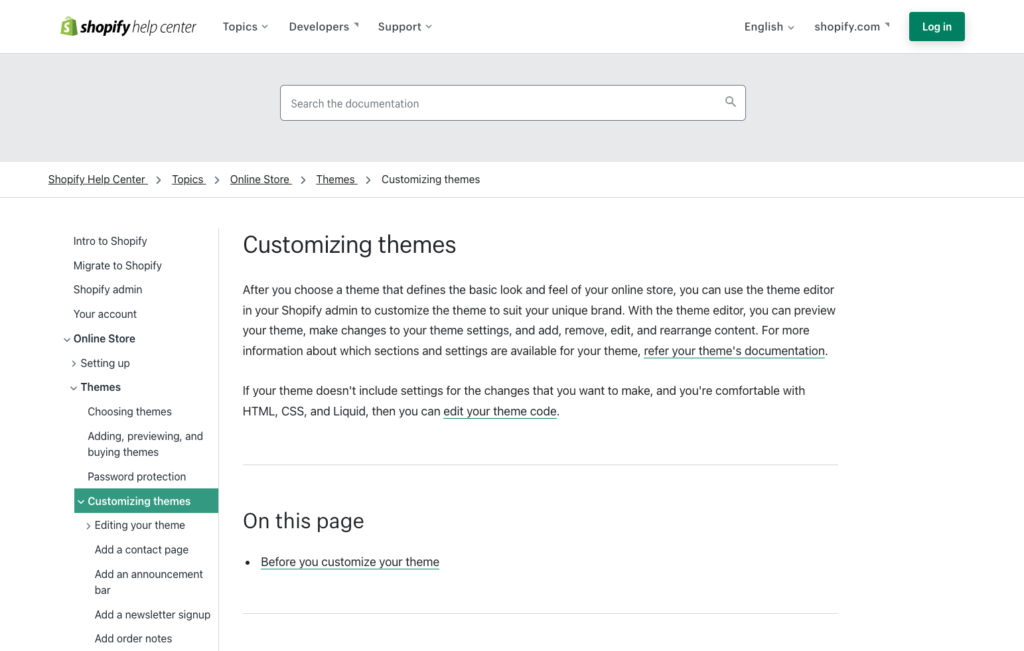
Moreover, Shopify’s API allows for the creation of custom apps that integrate seamlessly with your store. These apps can provide unique functionalities tailored to your business needs, giving you a competitive edge in the market.
BigCommerce API Customization Capabilities
Similarly, BigCommerce’s API provides a range of customization options for developers. The platform enables you to design and implement custom themes that reflect your brand’s identity. Through HTML, CSS, and JavaScript, developers can craft visually appealing storefronts that engage customers.
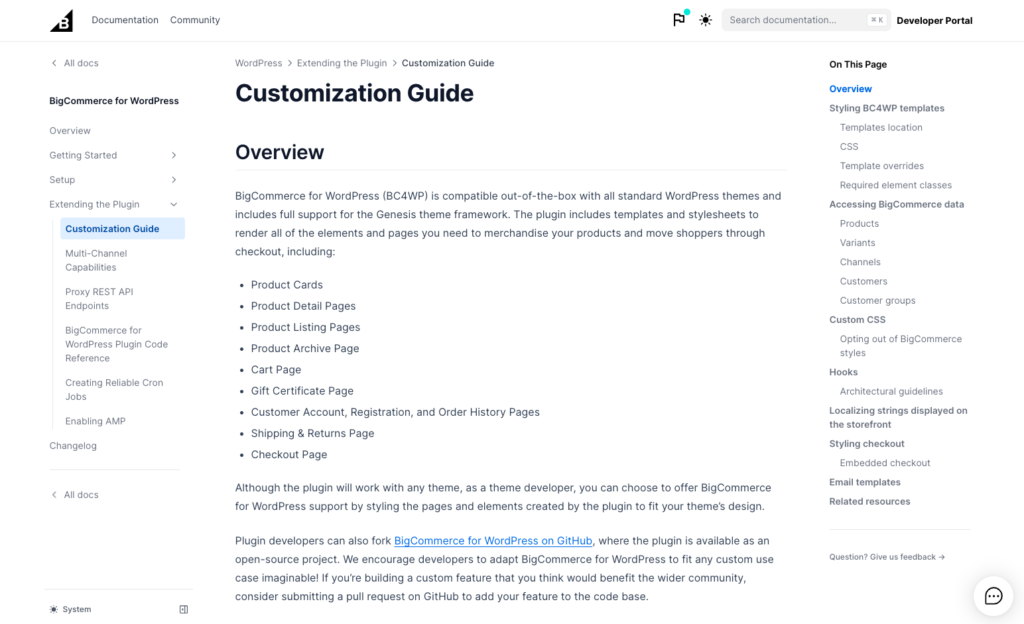
In addition to theme customization, BigCommerce’s API supports the development of custom apps. These apps can extend your store’s functionalities by integrating with third-party tools, enhancing user experience, and addressing specific business requirements.
Data Access and Manipulation
The ability to access and manipulate data efficiently is a critical aspect when evaluating APIs like Shopify and BigCommerce. Both platforms offer APIs that allow developers to interact with store data, retrieve information, and perform necessary actions. Let’s explore the data access and manipulation capabilities provided by these platforms.
Shopify API Data Access and Manipulation
Shopify’s API provides robust data access and manipulation capabilities that empower developers to interact with store data programmatically. Through well-defined endpoints, developers can retrieve information about products, orders, customers, and more. This data accessibility is essential for creating apps, generating reports, and implementing tailored solutions.
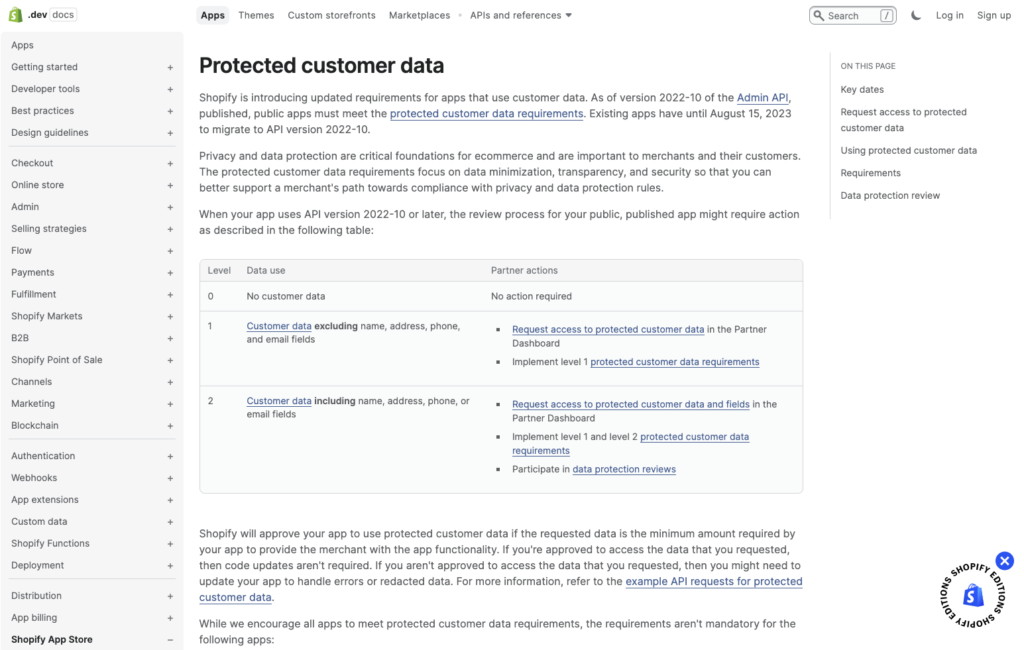
Moreover, Shopify’s API supports data manipulation, enabling developers to create, update, and delete records as needed. This capability allows for seamless synchronization between your Ecommerce store and external systems, enhancing efficiency and accuracy.
BigCommerce API Data Access and Manipulation
Similarly, BigCommerce’s API offers comprehensive data access and manipulation functionalities. The API provides endpoints that grant developers access to essential store data, including products, categories, customers, and orders. This data can be used to build apps, generate insights, and streamline Ecommerce operations.
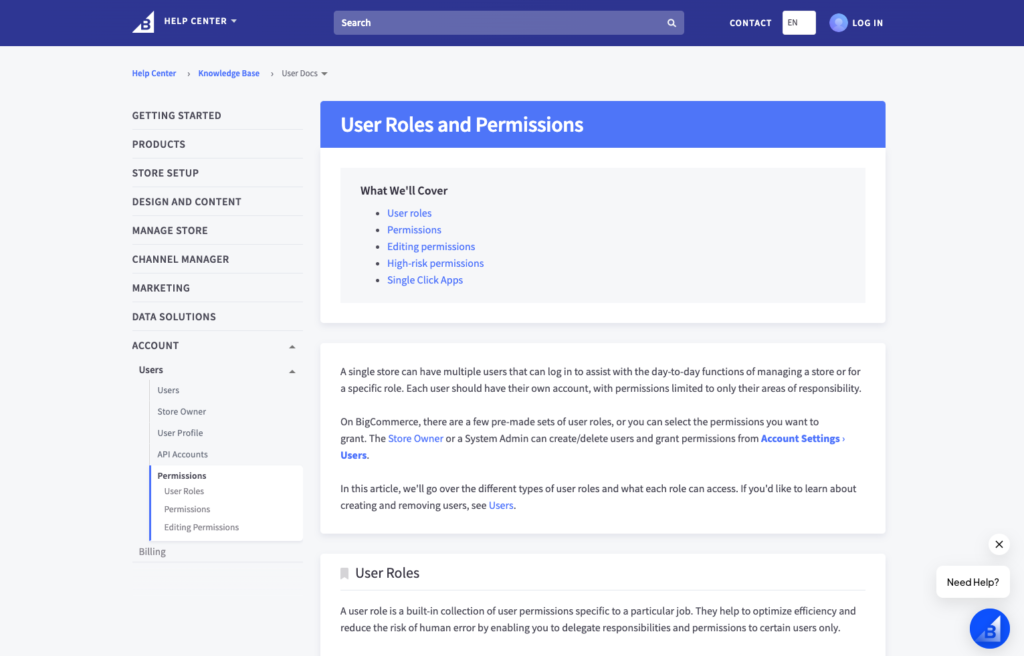
With data manipulation capabilities, developers can modify records, add new entries, and maintain data consistency. This ensures that your store’s information remains accurate and up-to-date across different platforms and services.
Performance and Speed
The performance and speed of APIs play a vital role in ensuring smooth interactions between your Ecommerce store and external applications. When comparing the APIs of Shopify and BigCommerce, evaluating their performance and speed is crucial for delivering a seamless experience to users. Let’s delve into the performance and speed aspects of both platforms’ APIs.
Shopify API Performance and Speed
Shopify places a strong emphasis on providing a high-performing API that delivers data efficiently. The platform’s API is hosted on Shopify’s robust cloud infrastructure, which ensures reliable and consistent performance. This is particularly important for Ecommerce operations that require real-time data updates and quick responses.
Shopify’s API endpoints are optimized to handle large volumes of requests without compromising speed. This means that whether you’re retrieving product information or processing orders, the API is designed to provide rapid responses, contributing to an enhanced user experience.
BigCommerce API Performance and Speed
Similarly, BigCommerce’s API is designed to offer excellent performance and speed. The platform’s API infrastructure is optimized to handle frequent and simultaneous requests, making it suitable for high-traffic Ecommerce stores. The API’s responsiveness ensures that your store data is readily accessible to external applications.
By delivering data promptly and efficiently, BigCommerce’s API contributes to maintaining a seamless and responsive online shopping experience for customers and users of connected applications.
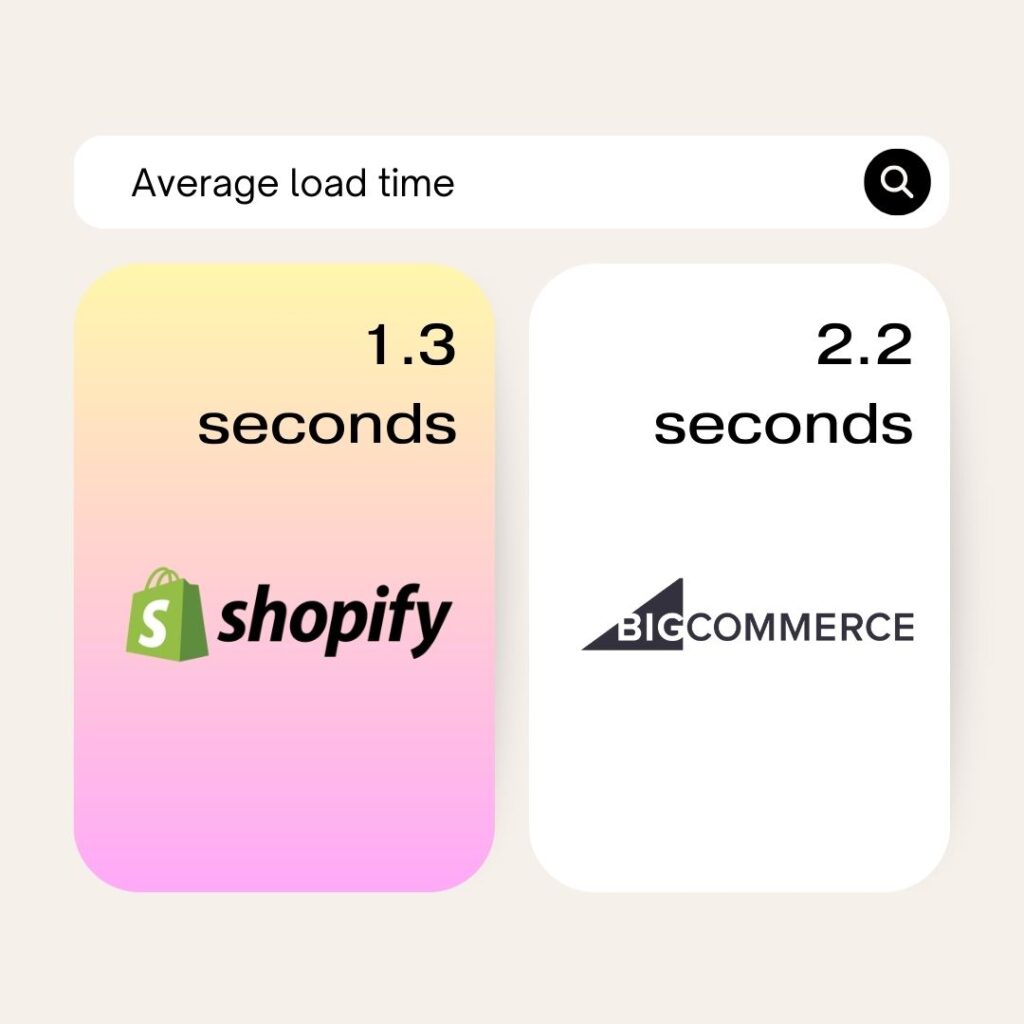
Webhooks and Real-Time Updates
Webhooks and real-time updates are crucial features in modern Ecommerce APIs that allow for seamless communication between your online store and external applications. When comparing the APIs of Shopify and BigCommerce, understanding their support for webhooks and real-time updates can greatly impact how you manage and synchronize data. Let’s explore the significance of webhooks and real-time updates on both platforms.
Shopify API Webhooks and Real-Time Updates
Shopify’s API offers robust support for webhooks, enabling your store to send real-time notifications to external applications whenever specific events occur. This means that when an event like an order placement or product update happens, your connected apps can instantly receive the relevant information.
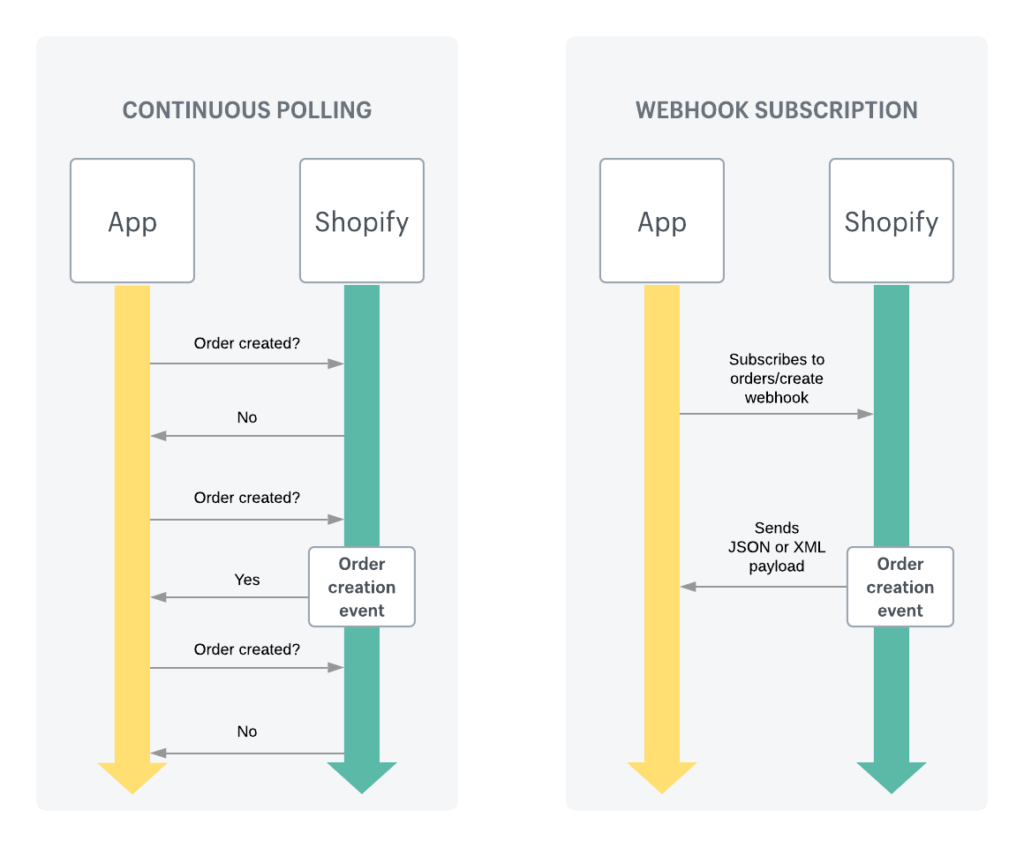
Webhooks provided by Shopify’s API can be set up to trigger notifications for various events, ensuring that your store and connected apps remain in sync without the need for constant polling.
BigCommerce API Webhooks and Real-Time Updates
Similarly, BigCommerce’s API provides the functionality to set up webhooks that deliver real-time updates. These webhooks allow your store to notify external applications about events such as order changes or inventory updates as soon as they occur.
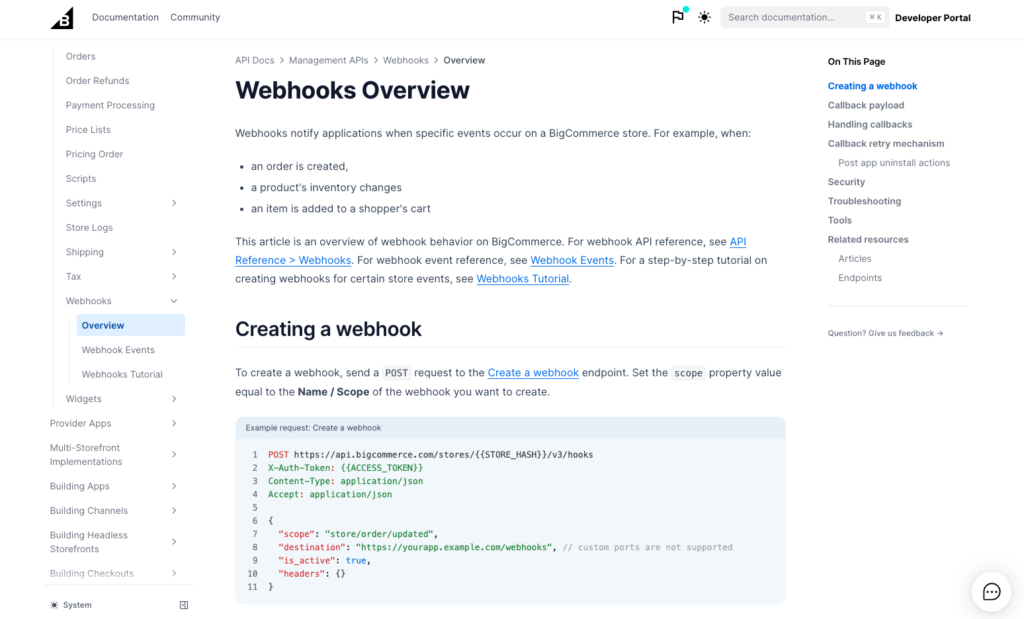
By leveraging webhooks in BigCommerce’s API, you can maintain accurate and up-to-date information across platforms, enhancing the efficiency of your Ecommerce operations.
Security and Authentication
Security and authentication are paramount when working with APIs, especially for Ecommerce platforms like Shopify and BigCommerce. Ensuring that your data is protected and interactions are secure is crucial for maintaining customer trust and safeguarding sensitive information. Let’s explore the security and authentication measures provided by both platforms’ APIs.
Shopify API Security and Authentication
Shopify’s API employs robust security protocols to protect the integrity of your store’s data. The platform employs industry-standard encryption to secure data transmission between your store and external applications. This ensures that data exchanged via API calls remains confidential and protected from unauthorized access.
Shopify’s API also utilizes OAuth authentication, a secure and widely recognized authentication method. OAuth requires developers to obtain authorization tokens, ensuring that only authorized parties can access and interact with your store’s data through the API.
BigCommerce API Security and Authentication
Similarly, BigCommerce’s API places a strong emphasis on security and authentication. The platform uses HTTPS encryption to safeguard data in transit, preventing data interception during communication between your store and external systems.
In addition to encryption, BigCommerce’s API supports OAuth and API tokens for authentication. These measures ensure that interactions with the API are secure and that only authorized users and applications can access your store’s data.
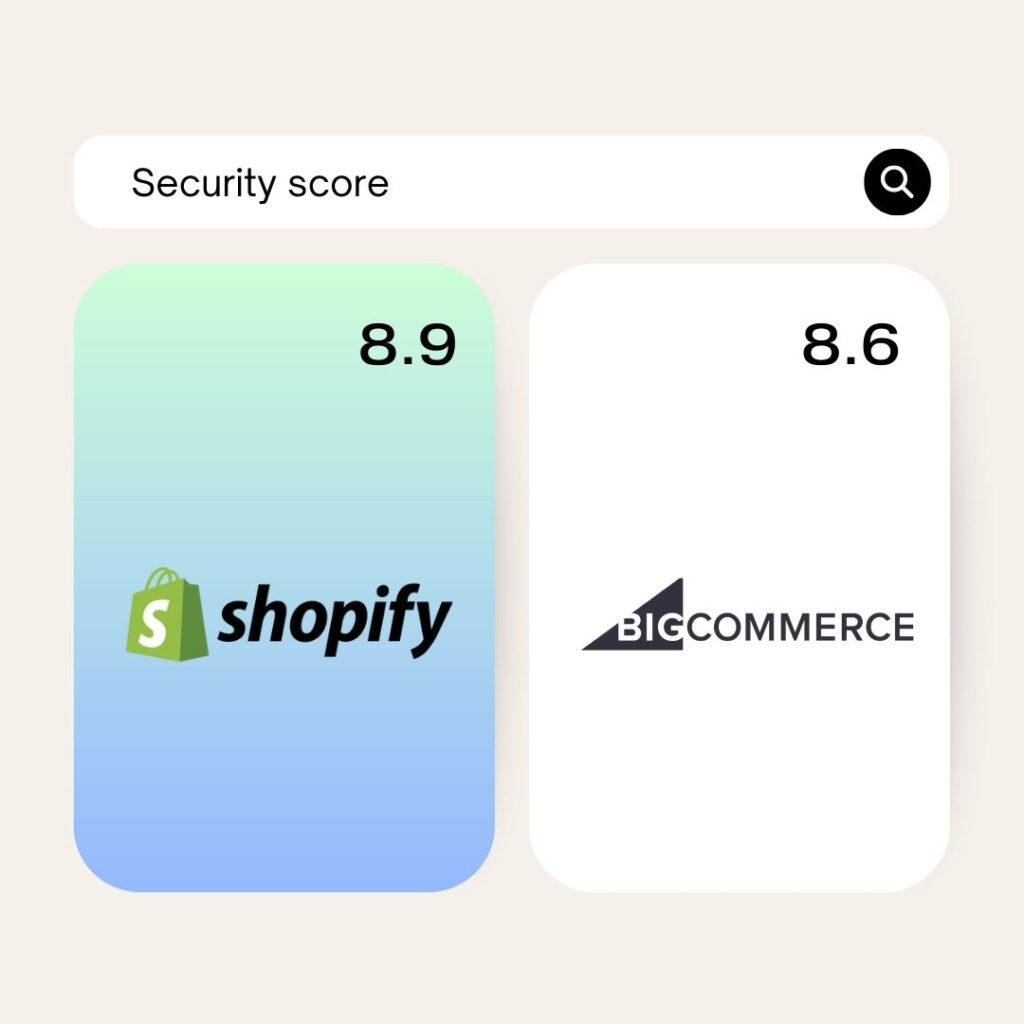
Source: https://www.g2.com/compare/bigcommerce-vs-shopify
Pricing and Costs
Understanding the pricing models and associated costs of using APIs is essential when comparing platforms like Shopify and BigCommerce. The financial aspect of integrating and utilizing APIs can impact your budget and influence your decision-making process. Let’s explore the pricing and costs associated with the APIs of both platforms.
Shopify API Pricing and Costs
Shopify offers a variety of pricing plans that include access to its API. The cost of using the API is typically included in your chosen subscription plan. Shopify’s pricing plans are tiered, with each plan offering different features and capabilities.

Keep in mind that while the API access itself might be included, additional costs could arise from third-party app integrations, custom development, and potential transaction fees for using certain payment gateways.
BigCommerce API Pricing and Costs
Similarly, BigCommerce’s pricing model also includes API access based on your selected plan. Like Shopify, BigCommerce offers various pricing tiers with varying levels of features and support.
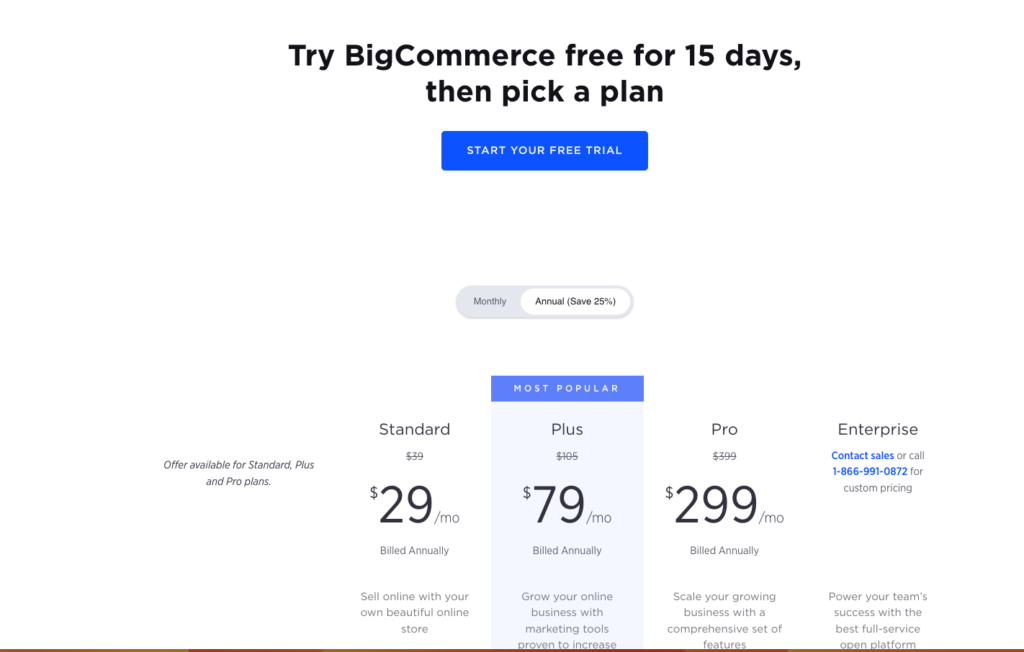
It’s important to consider potential additional costs for app integrations, custom development, and other services that might enhance your store’s functionality through the API.
Conclusion
In the dynamic world of Ecommerce, APIs play a pivotal role in enhancing functionality, improving efficiency, and expanding the possibilities of your online store. In this comprehensive comparison between Shopify API and BigCommerce API, we’ve explored various aspects that can influence your decision when choosing the right platform for your Ecommerce needs.
Both Shopify and BigCommerce offer developer-friendly features, robust integration possibilities, extensive customization capabilities, efficient data access and manipulation, optimal performance and speed, real-time updates through webhooks, secure authentication methods, and clear pricing structures. These factors contribute to making each platform a strong contender for businesses seeking to integrate and customize their Ecommerce operations.
As you weigh the options between Shopify and BigCommerce APIs, remember to consider the unique requirements of your business. Think about the scale of your operations, the technical expertise available, and the specific features that matter most to your customers. Whether you prioritize a user-friendly interface, a rich app ecosystem, extensive customization, or seamless data synchronization, both platforms offer valuable tools to support your goals.
Ultimately, the choice between Shopify and BigCommerce APIs will depend on your business’s individual needs and long-term objectives. Whichever platform you select, embracing the power of APIs will undoubtedly enhance your ability to create exceptional Ecommerce experiences, streamline operations, and achieve greater success in the competitive Ecommerce landscape.
Thank you for joining us on this exploration of Shopify API vs BigCommerce API. We hope this comparison has provided you with valuable insights to guide your decision-making process and elevate your Ecommerce journey.

